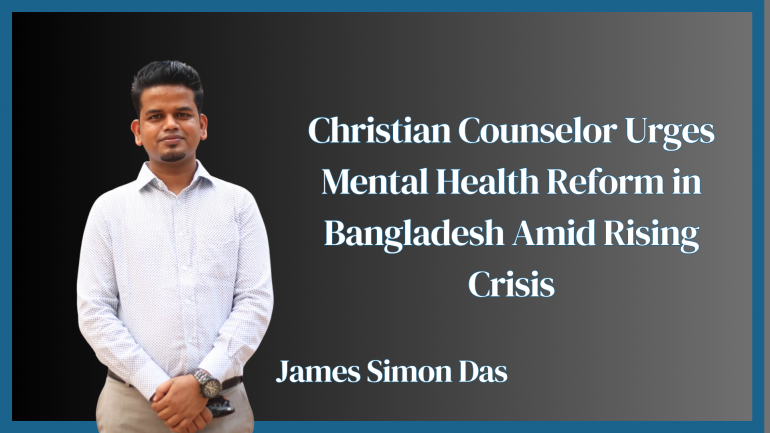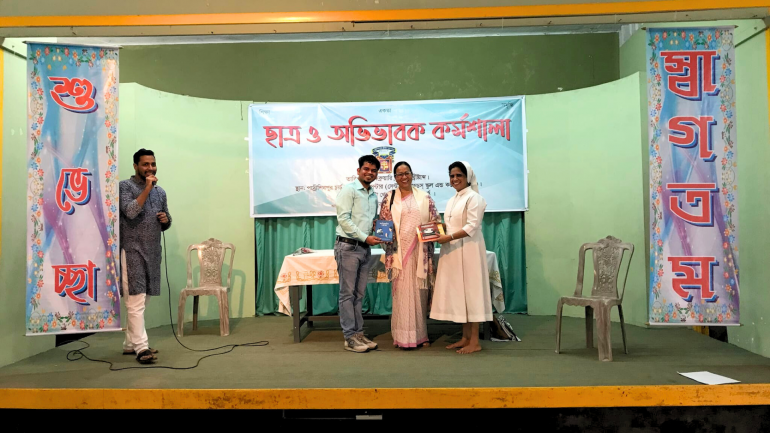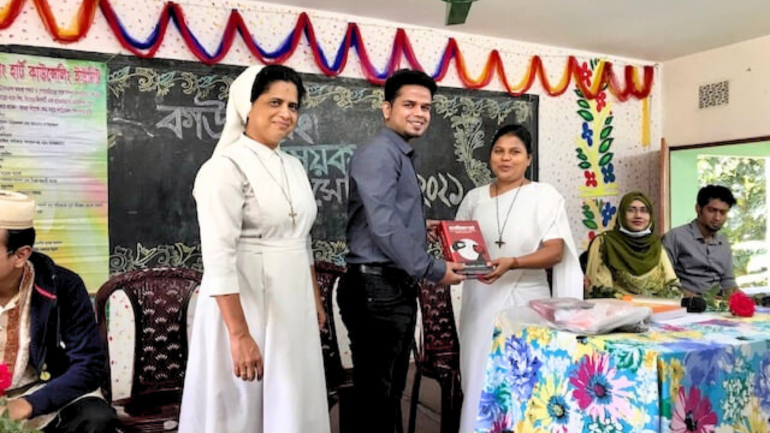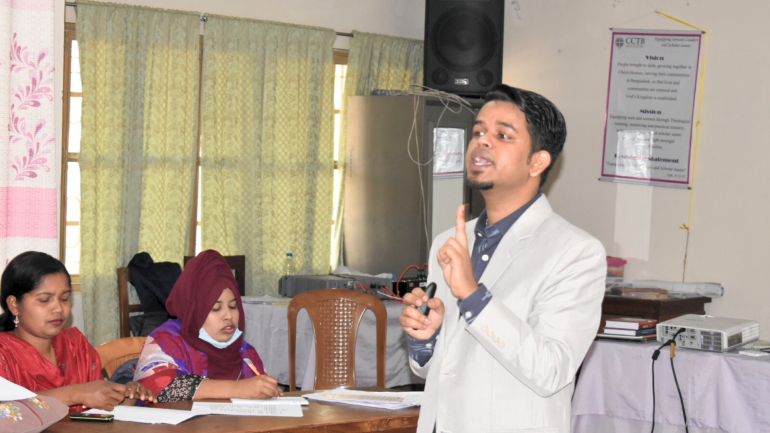Christian Counselor Urges Mental Health Reform in Bangladesh Amid Rising Crisis

As Bangladesh joins the global observance of World Mental Health Day on October 10, mental health professionals are raising urgent concerns about the country’s fragile mental health infrastructure.
This year’s theme, “Make mental health services available in times of disaster or emergency,” resonates deeply in a nation where 19 percent of adults suffer from mental illness, yet 95 percent remain outside the reach of formal mental health services.
James Simon Das, 32, well-being Counselor of Ulkasemi Pvt Limited and Assistant Director of Healing Heart, has been working on mental health for over eight years.
Healing Heart, founded by Catholic nun Sister Lipy Gloria Rozario of the Sisters of Our Lady of Sorrows, provides counseling and awareness programs across Bangladesh. Das believes that mental health remains one of the most neglected areas in the country’s healthcare system.
“The reason why 95 percent of the population is not covered by mental health services is that less than 0.1 percent of the national budget is allocated for it,” Das told RVA News. “Whatever is allocated goes to Dhaka for infrastructure. Mental health services are almost non-existent in districts, divisional cities, and villages.”
According to the Department of Health’s Non-Communicable Disease Control Program, 12 out of every 100,000 people in Bangladesh commit suicide annually, amounting to over 20,000 deaths each year. Depression, anxiety, and bipolar disorder are major contributors, compounded by family breakdowns, domestic violence, academic stress, social pressure, and addiction.
Das, who studied psychology at Dhaka University, says that mental health care is often viewed as a luxury. “Many people don’t know that counseling can be a life-saving intervention,” he said. “In rural areas, mental illness is often misunderstood. People think the person is possessed by a jinn or ghost and seek help from traditional healers. This leads to mistreatment and worsens the condition.”
He added that stigma plays a major role in preventing people from seeking help. “Even those who are aware of mental health issues feel ashamed to seek treatment. Families hide the condition, fearing social consequences. If someone has a mental illness, it becomes difficult to arrange their marriage. Even the guardians face challenges.”
The lack of trained professionals is another barrier. A 2020 UN report revealed that Bangladesh has only 220 psychiatrists and 350 psychologists for a population of over 170 million. Das believes that religious institutions can play a vital role in bridging this gap.
“Priests in churches, imams in mosques, and Hindu temple leaders can talk about mental health. They can encourage people to seek help from professionals instead of going to a Kabiraj,” he said. Kabiraj refers to traditional healers practicing Ayurveda, often consulted for mental health issues due to cultural beliefs.
Das’s work with Healing Heart includes seminars, workshops, and training programs in Catholic schools, diocesan commissions, and youth groups. He has co-authored six books on mental health with Sister Lipy and continues to advocate for open conversations around mental well-being.
“Mental disorders are invisible. You can’t see them like physical injuries,” he said. “We need to listen to those suffering, understand their thoughts, and guide them toward recovery. Many people are now living healthy lives after receiving counseling.”
The recent tragedy at Milestone School in Dhaka, where students faced severe trauma, prompted authorities to launch on-campus mental health services with support from the Bangladesh Air Force, BRAC, and the National Institute of Mental Health. However, experts say such initiatives are rare and often short-lived.
Das emphasized the need for long-term policy changes. “The government must increase the mental health budget and develop inclusive policies. Mental health should be integrated into primary healthcare. We need trained counselors in schools, workplaces, and communities.”
Despite being a member of the Lutheran Church, Das has worked closely with the Catholic Church for years. His ecumenical approach reflects a shared commitment to healing and compassion. “Faith communities have a responsibility to care for the whole person, body, mind, and spirit,” he said.
As Bangladesh marks World Mental Health Day, voices like Das’s remind us that mental health is not just a medical issue, it’s a social, cultural, and spiritual concern. Without urgent reforms, thousands will continue to suffer in silence.











